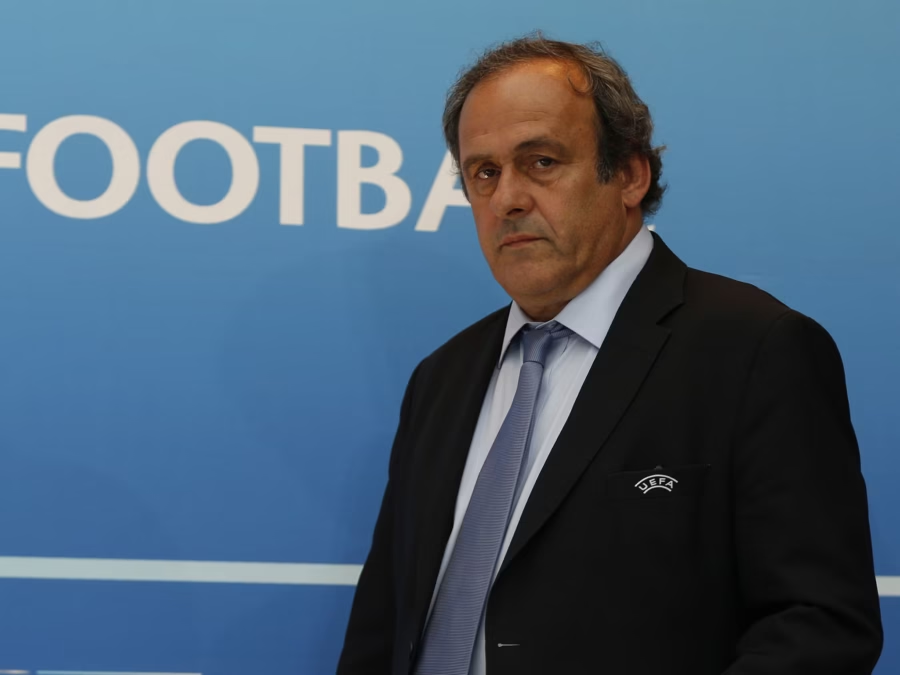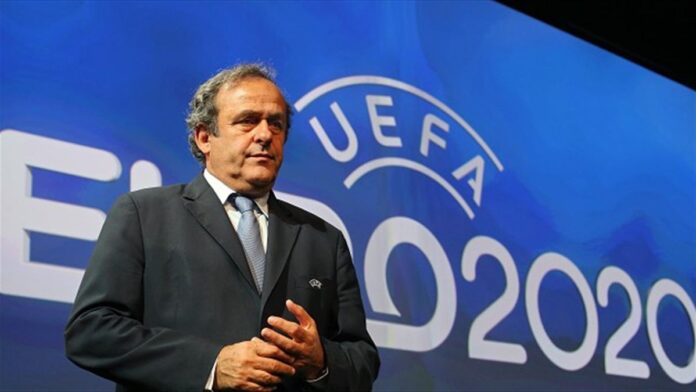Michel Platini born June 21, 1955, in Jœuf, Lorraine, France) is one of those names in football that instantly brings images of elegance on the field clever passes, free kicks curled just so, an understanding of the game that seems almost intuitive. But Platini’s story isn’t just about dazzling goals; it’s about responsibility, controversy, leadership, and human imperfection.
Early Life Grounded Beginnings
Michel Platini came from modest roots. His parents were Italian immigrants; his father, Aldo, was a professional footballer and later a club director at AS Nancy. Growing up in Lorraine, young Michel was exposed early to both the beauty and the harshness of football the optimism, the pressure, the physical toll.
He started playing very young, at AS Joeuf, the local club. There are stories of teenage Michel Platini standing out in regional matches flair, creativity, fearless shots but also struggling: injuries, sometimes doubt, moments when even breathing tests reportedly showed concerns. Still, he pushed through. It was clear, even early on, he had something different.
Club Career Nancy, Saint-Étienne, Juventus
- Nancy (1972–1979)
Michel Platini’s professional journey truly kicks off at Nancy. He becomes a pro in 1972, and despite injuries (like that double broken arm), and the occasional jeers, he begins scoring goals, shows leadership, and earns respect. Victory in the Coupe de France in 1978 with Nancy was a major early trophy, and confirmed he was someone special.
- Saint-Étienne (1979–1982)
Looking for bigger challenges, Michel Platini moved to Saint-Étienne. He won the French league in 1981. There were ups and downs: dramatic wins in European competition, yet cup final tortures losses, near misses that all contributed to shaping his character as a player who knows both euphoria and frustration.
- Juventus (1982–1987)
This is where Platini reaches his peak. Moving to Italy, to a storied club, was a risky leap. Serie A was (and often still is) tactically sharp and physically intense. Platini adapted. He dominated. He won Serie A titles, the European Cup, other European trophies. He won the Ballon d’Or three years in a row (1983, 1984, 1985). He became known not just as a goal-scorer but as the playmaker: free kicks, vision, balls that split defences. He led Juventus to the European Cup in 1985. For many people, that phase is the Michel Platini they remember.
International Stardom France’s Captain, Euro ’84, World Cups
Platini’s contributions to French national team are massive.
- He earned 72 caps for France, scoring 41 goals.
- Euro 1984 (hosted by France) was his crowning moment on the international stage: Platini was top goalscorer (9 goals in 5 matches), best player of the tournament. He showed leadership not just by scoring, but by inspiring teammates, shouldering pressure from home expectations. France won their first major international trophy.
- World Cups in 1982 and 1986 had their dramatic highs and heartbreaks. The match vs West Germany in 1982 (semifinal) is still talked about the Battiston collision, the flair, the intensity. In 1986, despite injuries and physical pain, Platini scored in crucial matches. France didn’t win, but their run and his performances cemented his legend.
Playing Style What Made Him Special
I remember watching clips, reading about him, and being struck by how Platini seemed to see the game differently. Some of his standout traits:
- Vision and intelligence: He could anticipate moves, position himself to receive or make the killer ball. He wasn’t just reacting; often, he was acting ahead.
- Free kicks and set pieces: Probably among the best ever. When you saw him line up a free kick, you felt it might be over before it began.
- Scoring and playmaking combined: Many creative midfielders help others score. Michel Platini did both: he created chances, but also put them away. Against big defences in Serie A, that kind of balance takes guts.
- Composure under pressure: He wasn’t the fastest, or the most physically overpowering. What he had was calm. Under blazing stadium lights, or in the face of jeers, he kept cool. It’s a rare quality.
After Playing Coaching, Administration, and Controversy
Retirement from playing didn’t mean he disappeared. He became manager of France (1988-1992), helping build teams, developing young talent. Not always successful (Euro ’92 ended poorly) but he showed he understood more than tactics he understood identity, national expectations, what it meant to carry the jersey.
Then came the big administrative role: in 2007, Platini became President of UEFA. He had plans: more solidarity, improving football’s structures, greater fairness. Some ideas were popular; others controversial. He served until 2015. But his tenure didn’t end without a crash. Ethics investigations, suspensions, questions about payments from FIFA (including a controversial 2-million Swiss franc payment) haunted him. Legal fights followed, public trust was tested. In 2025, a Swiss court acquitted him of fraud in that case, saying his honour was restored.

Legacy What Remains of Michel Platini?
When I think of Platini, here are the things I believe will last:
- The memory of artistry Platini’s playing days are still inspiring young footballers, especially midfielders. The belief that creativity + intelligence can beat raw athleticism is one his career stands for.
- A benchmark of leadership On the pitch, off it, he challenged norms. As captain, as manager, as UEFA president, he tried to reach higher. Even the controversies reflect the weight of responsibility he carried and sometimes dropped.
- Dualities: greatness and fallibility Part of the Michel Platini story that people sometimes gloss over is his mistakes. The ethics issues, the bans, the legal battles. These remind us that legends are people too with pride, missteps, regrets.
- Inspiration in France and beyond In France, he helped put the national team on map; he helped build a vision of French football in the 1980s that remains a golden age (with the “carré magique” of midfielders, etc.). Internationally, clubs, players, fans who love “beautiful football” still point to his years at Juventus, Euro ’84, those free kicks.
Final Thoughts
If I were to sum up Michel Platini in one honest sentence: he is one of football’s great poets someone whose artistry on the field gave joy, whose leadership off it had impact, but whose life also reminds us that big stages bring big scrutiny. Sometimes I wonder: if he’d never gone into football politics, would his legacy be purer, simpler? But part of what makes him human is that he took those risks, dealt with consequences, both good and bad. And now, especially after the Swiss acquittal in 2025, there’s a chance for re-evaluation: to remember not just the controversies, but the magic.


